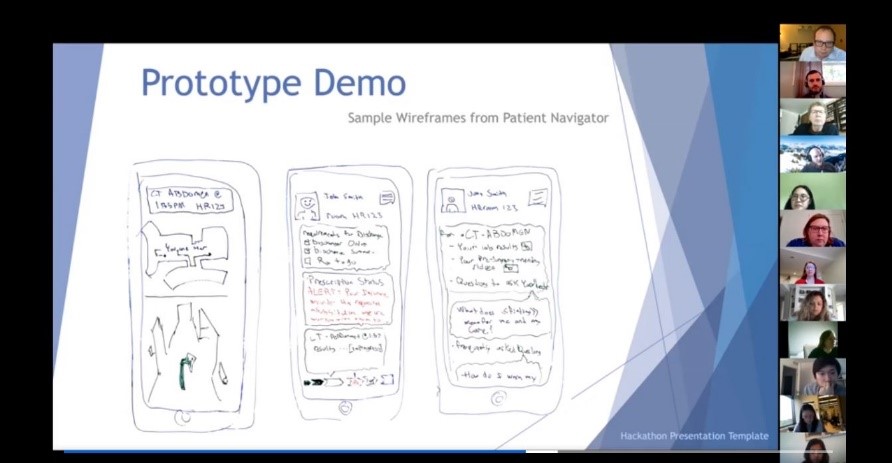Harrell Library hosts first health care hackathon

Traditionally, a “hackathon” has referred to a 24-hour event where programming teams compete to build the best app prototype related to a chosen theme, but the definition has expanded in recent years. In today’s innovation landscape, a hackathon can be any event where people work collaboratively over an extended period of time to generate solutions around a topic of interest. In other words, people work together to find a “hack” to fix various problems relevant to today.
On May 28, Harrell Health Sciences Library hosted its first Health Care Hackathon. The theme chosen for the event was “Improving Communication in Health Care.” Attended by a variety of members of the Penn State Health and Penn State community, the event was held virtually due to statewide stay-at-home measures. Nonetheless, it was a dynamic day of collaboration and communication across lines of departments, roles and areas of expertise.
The day began with a kickoff meeting via Zoom to introduce participants to the hosts, judges and general schedule for the event. Then, participants split into four teams to spend time developing their ideas and presentations. During the working sessions, each group received check-ins from judges to discuss their progress. At the end of the day, each team had five minutes to present their idea to the judges in a flash presentation that included some form of mockup or initial prototype.
While the judges were impressed with all four presentations, the winning idea came from nurse Iris Li and developer Charlie Crandall. They presented an idea for a Patient Navigator app that would be “an enhancement to the patient portal to increase patient satisfaction by giving them relevant information in a timely fashion while easing the burden placed on providers and staff.” The app would integrate existing resources such as the patient portal and shuttle service app, and streamline the patient experience in three areas. There would be a physical navigator similar to GPS or map of campus, an experience navigator that would give patients a “progress bar” of their visit, and a knowledge navigator to help patients better understand their care. The team described a real-world situation where the app could improve patient interaction with the system by managing expectations for the timing and process of release from a hospital visit. It was exciting to see how the experience and perspective of both group members contributed to the success of this idea’s development.
Those interested in participating in a future Health Care Hackathon at Harrell Health Sciences Library should keep an eye on the upcoming events page of the library’s website for the next one and other related events.
Read more
If you're having trouble accessing this content, or would like it in another format, please email the Penn State College of Medicine web department.
